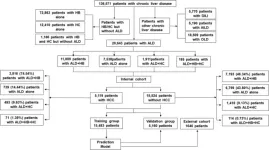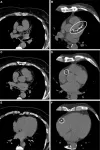(Press-News.org) Adults who sleep only three to five hours a day are at higher risk of developing type 2 diabetes. This is demonstrated in a new study from Uppsala University, published in JAMA Network Open. It also shows that chronic sleep deprivation cannot be compensated by healthy eating alone.
“I generally recommend prioritising sleep, although I understand it’s not always possible, especially as a parent of four teenagers,” says Christian Benedict, Associate Professor and sleep researcher at the Department of Pharmaceutical Biosciences at Uppsala University and leading researcher behind the study.
He and a team of researchers have examined the link between type 2 diabetes and sleep deprivation. Type 2 diabetes affects the body’s ability to process sugar (glucose), hindering insulin absorption and resulting in high blood sugar levels. A report from 2020 showed that over 462 million people suffer from this disease. Over time, it can cause serious damage, particularly to nerves and blood vessels, and thus represents an escalating public health problem globally.
“Previous research has shown that repeated short daily rest increases the risk of type 2 diabetes, while healthy dietary habits such as regularly eating fruit and vegetables can reduce the risk. However, it has remained unclear whether people who sleep too little can reduce their risk of developing type 2 diabetes by eating healthily,” notes Diana Noga, a sleep researcher at the Department of Pharmaceutical Biosciences at Uppsala University.
The researchers therefore used data from one of the largest population databases in the world, the UK Biobank, in which nearly half a million participants from the UK have been genetically mapped and responded to questions on health and lifestyle. They followed the participants for over ten years and found that a sleep duration of between three and five hours was linked to a higher risk of developing type 2 diabetes.
In contrast, healthy eating habits led to a lower risk of developing the disease, but even people who ate healthily but slept less than six hours a day were still at higher risk of type 2 diabetes.
“Our results are the first to question whether a healthy diet can compensate for lack of sleep in terms of the risk of type 2 diabetes. They should not cause concern, but instead be seen as a reminder that sleep plays an important role in health,” explains Benedict.
He also argues that the effects of sleep deprivation vary between individuals, depending on aspects such as genetics and a person’s actual need for sleep.
END
Too little sleep raises risk of type 2 diabetes
2024-03-05
ELSE PRESS RELEASES FROM THIS DATE:
Toward understanding sperm quality
2024-03-05
A novel screening system developed at Kyoto University enables researchers to investigate sperm cell development and health at the molecular level. The new approach, published in Cell Genomics, promises breakthroughs in male contraception and infertility treatments.
The study, led by Professor Jun Suzuki of the Institute for Integrated Cell-Material Sciences (iCeMS), addresses a critical gap by directly targeting genes within testicular cells inside living organisms. Utilizing a genetic tool called CRISPR, which can ...
Game-changing sensor unveiled for spotting chemical threats
2024-03-05
Scientists have unveiled a groundbreaking sensor that can wirelessly detect chemical warfare agents, marking a significant leap in public safety technology. This innovative device, capable of identifying substances like dimethyl methylphosphonate (DMMP), offers a new level of efficiency and reliability in monitoring and responding to chemical threats, without the need for direct power sources or physical connections.
The urgent need for advanced detection of chemical warfare agents (CWAs) to ensure global security has led to the development of a novel gas sensor. This sensor is distinguished ...
The many faces of a zinc anode: Configurations can make a difference in performance
2024-03-05
Sometimes the solution to a problem can be as simple as changing the way the components are structured
Researchers have proposed a reconfiguration of zinc anodes, a component of renewable energy sources, to help improve the battery and reduce the reliance society has on fossil fuels. The potential that different configurations of a zinc anode can have could reduce costs and side reactions while increasing the safety of the rechargeable zinc metal battery (RZMB) and, of course, improve its “green” rating.
The results were published in Energy Materials and Devices ...
Team successfully synthesizes atomically precise metal nanoclusters
2024-03-05
A research team has successfully synthesized a metal nanocluster and determined its crystal structure. Their study provides experimental evidence for understanding and designing nanoclusters with specific properties at the atomic level. Metal nanoclusters have wide-ranging applications in the biomedical field.
Their work is published in the journal Polyoxometalates on February 6, 2024.
Scientists have shown interest in ligand-protected atomically precise metal nanoclusters because they have definite atomic structures and exceptional ...
Rising alcohol-related liver cancer prompts new prediction tool
2024-03-05
Liver cancer, unfortunately, is the sixth most common cancer and the third most frequent cause of cancer-related death globally. However, its distribution and causes vary greatly across different regions. While areas like Eastern Asia and sub-Saharan Africa see the most cases, the reasons behind them differ significantly.
In high-income countries, liver cancer has been on the decline thanks to widespread newborn hepatitis B vaccination and antiviral drugs. Meanwhile, low-income countries witness a worrying rise, ...
Sprinting ‘like a jet’ will produce Premier League strikers of tomorrow
2024-03-05
Sprinting “like a jet plane taking off” will help produce Premier League star strikers of tomorrow, new research has revealed.
A University of Essex study of Tottenham Hotspur’s academy has shown that just a few words can instantly boost sprinting speed by 3 per cent over 20 metres.
It would normally take weeks of targeted training to achieve such a large increase.
These short bursts of acceleration are largely seen in goal-scoring situations and could be the difference in beating a defender and finding the net.
Dr Jason Moran, from the School of Sport, Rehabilitation and Exercise Sciences, discovered simple analogies increased ...
Coronary artery calcium score predictive of heart attacks, strokes
2024-03-05
OAK BROOK, Ill. – Coronary artery calcium scoring with CT can identify symptomatic patients with a very low risk of heart attacks or strokes, according to a new study published today in Radiology, a journal of the Radiological Society of North America (RSNA). Researchers said the findings may one day help some patients with stable chest pain avoid invasive coronary angiography.
Coronary artery calcium scoring with CT was developed to noninvasively measure the amount of calcium in the arteries of the heart. Higher scores are linked with atherosclerosis, a buildup of plaque in the arteries. A score of 1 to 399, for instance, suggests a moderate amount of plaque, while 400 ...
Harvard neuroscientist Haim Sompolinsky awarded Brain Prize
2024-03-05
Haim Sompolinsky, Professor in Residence in Harvard’s Department of Molecular and Cellular Biology and Department of Physics, has received the Brain Prize for his pioneering contributions to computational and theoretical neuroscience.
Considered the world’s most prestigious prize for neuroscience research, the Brain Prize 2024 is shared by Sompolinsky, Larry Abbott of Columbia University, and Terrence Sejnowski of the Salk Institute. All three scientists have helped uncover key principles governing the brain’s structure, ...
Smoking during pregnancy may increase the risk of behavioral disorders in newborns, predicts AI
2024-03-05
Although several studies have linked smoking during pregnancy with neurodevelopmental disorders, the results of behavioral experiments in mice prenatally exposed to nicotine have been inconsistent. In a recent study, scientists from Japan developed a deep learning-based framework to automatically observe and classify mice behavior in such experiments, producing more accurate and unbiased results. They show that prenatal exposure to nicotine could increase the risk of autism spectrum- and attention deficit/hyperactivity disorders in newborns.
The fact that smoking is a risk factor for several diseases, including cancer, stroke, and diabetes, has been known for approximately ...
Dive into the future of molecular life sciences at #DiscoverBMB 2024
2024-03-05
Which natural products are helping solve biotech challenges? How can enzymes supercharge biodegradation for a greener tomorrow? What role does RNA play in cancer and other diseases? You’ll find the answers to these questions and more at Discover BMB, the annual meeting of the American Society for Biochemistry and Molecular Biology, to be held March 23–26 in San Antonio.
Secure your front-row seat to cutting-edge findings, approaches and technologies in the biological sciences by registering for a complimentary ...








